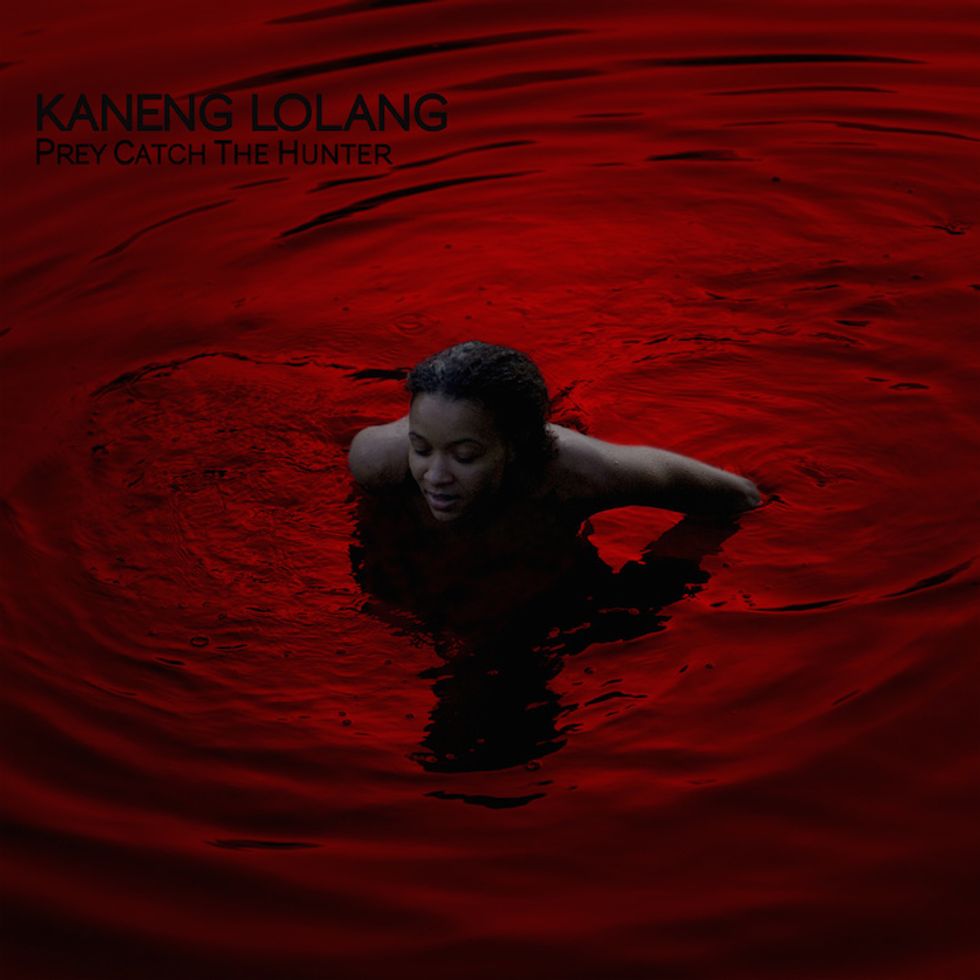Kaneng Lolang's Burkina Faso-Shot Video For 'Constant Messiah'
Watch Kaneng Lolang's Burkina Faso-shot video for "Constant Messiah" plus her collaboration with TVOTR's Tunde Adebimpe.

Kaneng Lolang is a self-described shape-shifter vocalist who "grew between the cultures of Nigeria, Bulgaria and Russian-occupied Siberia... [with] earliest inspirations in the music of Russian bard Vladimir Visotsky, the daily cacophony of Lagos , and Tina Turner." Her meditative tracks build on a minimal percussive or bass loop, which is then bathed with layers of airy, often spontaneous vocal lines. "Song to me is a ritualistic process," she mentions "and the subject matter and writing structure are rarely preconceived before the recording." Below, we spoke to Kaneng about the nature her new Burkina Faso-shot music video for "Constant Messiah" and her collaboration with TV On The Radio's Tunde Adebimpe. Kaneng's latest release Prey Catch The Hunter is available now through her bandcamp.
Tell us about the video for "Constant Messiah"? Where in Burkina Faso was it shot? Who are the women in the video?
The video was shot in and around Bobo Dioulasso, in southwestern Burkina Faso, a region where animist culture still exists unaltered amidst the dynamics of a growing city. The video was mostly filmed by myself and Fatou, a neighbour and local fruit vendor filmed some shots. The women in the video are Aisha Traore, a Malian dancer and mother of five, Lea Rodier, a French agronomist who was working to ensure fair export rates for shea butter producers, Betty Ouedraogo, a Mossi puppeteer from Ouagadougou, and Flo, another French woman who was in Burkina to study bronze sculpting.
Was Prey Catch The Hunter recorded in Burkina Faso? What would you say are the main Burkina/Lagos influences on the release?
I recorded Prey Catch The Hunter in London, on an old Roland 8-track. Most songs were written to a bass tone or percussive bass line that would either be elaborated on or kept minimal. Song to me is a ritualistic process, and the subject matter and writing structure are rarely preconceived before the recording.I'd usually begin the session just wanting to stream out, communion with myself. Having recently given birth to my daughter, the nature of that event brought out what felt most monumental to my life as a woman and human being up to that point. Once these rituals were recorded, the song would take on a more cohesive form, and I would know the sonic and overdubbing direction from that point.
The Lagos influences on the record are not genre-specific.The city’s surreal non-fictions inspire my lyrical sensibility, but not most identifiably my sound. This is due to the fact that Lagos is also no longer the city that it was when I left . The Lagos in my heart is the one that pulses with an innovative sonic output which created so many musical hybrids, few of which have reached the global listener. There is a certain "pissed off with what Lagos has become" sentiment that I share with Adio West, a fellow Lagosian musician, who demands "Wake up!" in Yoruba on the track "Peoplestand". On “Teeth” the economic realities of Nigeria are weaved in to the lyrics mostly , though I also had in mind the common economic reality of most European created Bantu nation-states.
How did you end up collaborating with Tunde Adebimpe from TVOTR on "Palm"?
I met Tunde when I lived in Brooklyn. The subject of Nigeria is how our minds met initially and music making progressed naturally. “Palm “ was recorded by myself when I had been thinking about the societal need to give men more space to express childhood trauma, and so the song, to make a more wholesome lullaby to men’s inner children was begging for Tunde’s stoic , soothing tone. Knowing his peaceful disposition , he was the only person to duet the message with. We met again in London and his vocals were dubbed over mine along with his astral effects, and “Palm” was complete.


